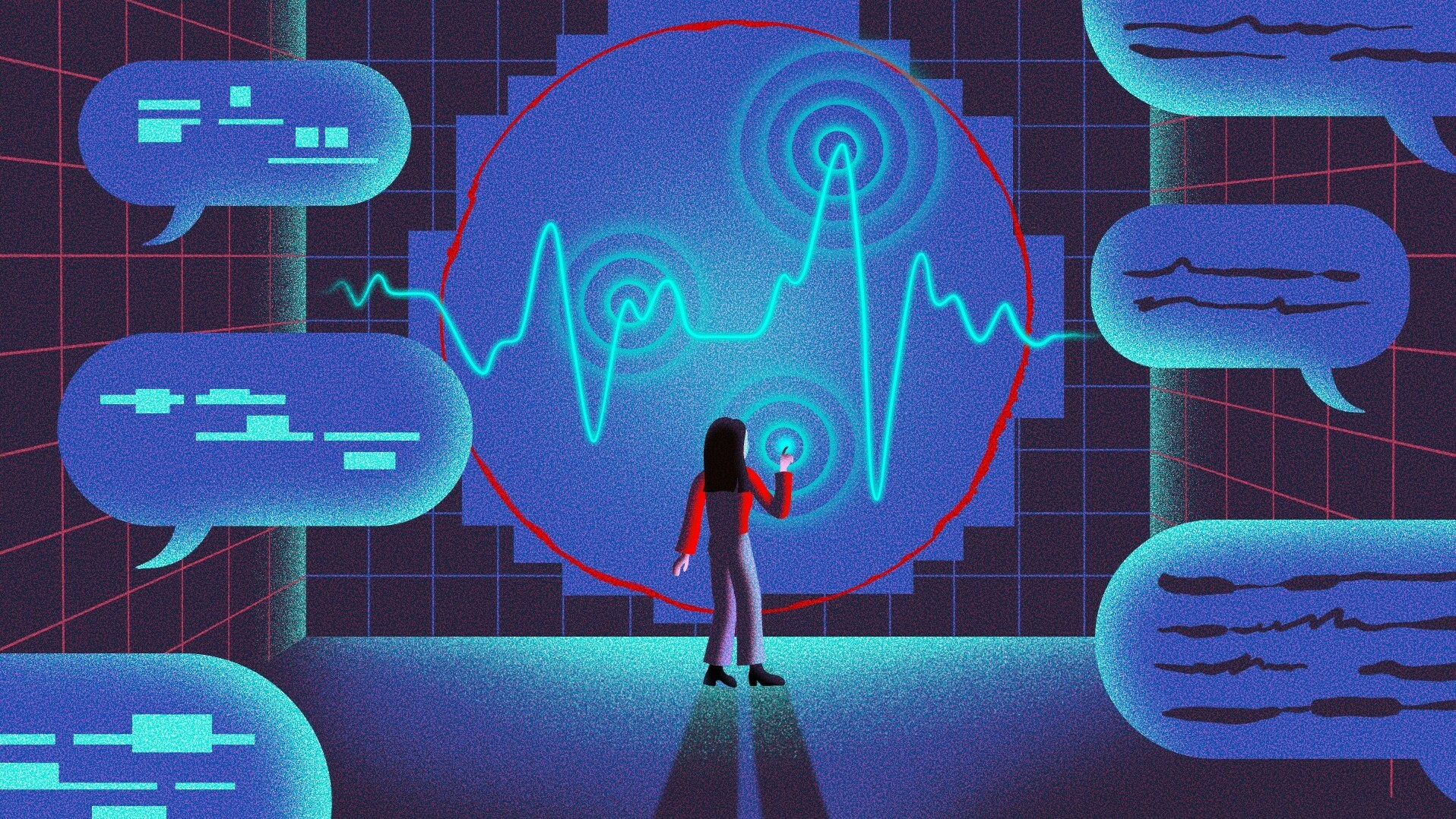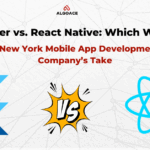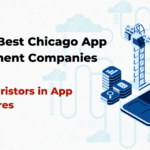
In today’s rapidly evolving environment, mental health has emerged as a significant issue. As the pressures of contemporary life escalate, many individuals are actively looking for methods to enhance their mental wellness. Fortunately, technological advancements, especially in Mobile App Services, are leading to innovative approaches that support mental health. Among the most encouraging innovations is the implementation of AI-driven therapies, which are revolutionizing our approach to mental health care. This article examines how these technologies are altering the mental health treatment landscape and their potential influence on the future of mobile health applications.
The Rise of Mobile App Services in Mental Health
Mental health care has historically been linked to face-to-face therapy sessions or medication-based treatments. However, the rise of smartphones and the growing popularity of Mobile App Services have provided individuals with a convenient and accessible means to address their mental health needs. These applications offer a wide range of services, including mindfulness exercises, cognitive behavioral therapy (CBT) activities, mood tracking, and stress management techniques.
The demand for mental health assistance is a global concern, and mobile applications present an avenue for individuals to seek support beyond conventional methods. From guided meditation applications to therapy chatbots, the capacity of mobile technology to enhance mental health is significant.
Why AI-Powered Therapies Are the Future of Mental Health
Artificial Intelligence (AI) is revolutionizing various industries, including mental health care. Its capability to process extensive datasets, recognize trends, and deliver customized insights and recommendations positions it as a significant asset for mental health interventions.
Through AI-driven therapeutic approaches, individuals can receive personalized assistance that evolves according to their unique mental health requirements. Technologies such as natural language processing (NLP), machine learning, and predictive analytics are being incorporated into mental health applications to facilitate immediate support, track progress, and offer critical insights into a user’s emotional well-being.
AI-Powered Mental Health Apps: A New Era of Personalization
One of the most compelling features of Mobile App Services in the realm of mental health is the capacity for tailored treatment. Artificial intelligence algorithms can evaluate user data, including emotions, thoughts, and behavioral trends, to create interventions that cater to individual requirements. For instance, a user may provide details regarding their current emotional state, stress levels, and sleep habits, prompting the app’s AI to suggest targeted exercises, meditation practices, or cognitive behavioral strategies aimed at reducing their symptoms.
Additionally, these applications can adapt based on user feedback, refining treatment plans as needed, which enhances the therapeutic experience by making it more fluid and responsive. Achieving such a degree of personalization would be challenging in traditional face-to-face therapy, which is frequently constrained by time limitations and generalized approaches.
Integrating AI with Existing Mental Health Therapies
AI-driven mobile application services are designed not to supplant traditional therapeutic methods but to enhance them. By incorporating artificial intelligence into established therapeutic frameworks, such as cognitive behavioral therapy (CBT), dialectical behavior therapy (DBT), and mindfulness-based stress reduction (MBSR), these mobile applications can deliver a superior level of assistance.
For example, applications that utilize AI can provide automated conversational therapy, such as therapy chatbots, which mimic interactions with mental health professionals. These AI-based resources grant users immediate access to support, offering guidance and coping strategies at any hour. Furthermore, AI systems can monitor a user’s emotional progression over time, equipping therapists with valuable insights that can lead to more effective face-to-face sessions.
Monitoring and Tracking Mental Health with AI-Powered Apps
One of the significant advantages of AI-driven therapies is their capacity to consistently monitor and assess an individual’s mental health journey. By gathering data through various means, including mood journals, sleep habits, and stress indicators, these applications enable users to observe their emotional health over an extended period. The analysis of this information allows AI algorithms to provide predictive insights, identify potential mental health concerns, and recommend proactive strategies to mitigate any developing issues.
This ongoing monitoring proves particularly beneficial for those experiencing chronic mental health challenges, such as anxiety or depression. Instead of depending solely on traditional, scheduled consultations with a therapist, users can benefit from continuous feedback and support that is both timely and pertinent to their present emotional condition.
The Benefits of AI in Mental Health Mobile App Services
AI-powered mental health apps offer several key benefits:
1. Accessibility
AI-driven mobile applications offer users round-the-clock access to mental health resources, enabling them to obtain assistance at any time. This feature is especially beneficial for those residing in remote locations or individuals who encounter obstacles to accessing traditional therapy.
2. Affordability
Conventional therapy can be prohibitively expensive, making it inaccessible for many. AI-enhanced mobile applications present a cost-effective solution, delivering quality support at a significantly lower price.
3. Anonymity
A considerable number of individuals may refrain from seeking help due to the stigma associated with mental health issues. AI-enabled applications afford a degree of anonymity, which can motivate more individuals to pursue assistance without the fear of being judged.
4. Real-Time Support
Mobile applications are capable of providing immediate support, which is crucial for those facing a mental health emergency. AI-based features such as mood tracking, guided meditation, and relaxation techniques can offer prompt relief.
The Role of Software Development Companies in Advancing AI-Powered Mental Health Apps
Software development company are essential in the design and enhancement of mobile applications dedicated to mental health. These company are tasked with creating artificial intelligence algorithms, user interfaces, and features that contribute to the efficacy of these applications. Their proficiency in artificial intelligence, machine learning, and application development guarantees that mental health apps are both accessible to users and robust in their technical foundation.
Effective AI-driven therapies are the result of collaboration among mental health professionals, software developers, and data scientists. Developers must engage closely with mental health specialists to ensure that the therapeutic approaches embedded within the applications are grounded in evidence and conform to the latest best practices.
The Challenges of AI in Mental Health App Development
While the potential of AI in mental health is vast, several challenges need to be addressed for AI-powered Mobile App Services to reach their full potential:
1. Data Privacy and Security
The gathering and examination of sensitive mental health information present significant privacy issues. It is imperative for developers to guarantee that their applications adhere to data protection laws, such as the General Data Protection Regulation (GDPR), and to implement strong encryption techniques to protect user data.
2. Bias in AI Algorithms
The efficacy of AI systems is directly linked to the quality of the data utilized for their training. If the datasets employed to train AI algorithms contain biases, this may result in flawed or discriminatory outcomes. Therefore, software development company must ensure that their AI models are developed using diverse and representative datasets.
3. Regulation and Ethical Concerns
Mental health applications powered by AI must comply with regulatory requirements and ethical standards to confirm their safety and effectiveness for users. This entails ensuring that AI-driven tools serve to enhance, rather than replace, the role of professional therapists.
4. User Engagement
Encouraging users to maintain regular engagement with a mental health application can prove to be difficult. Developers should prioritize the creation of engaging and user-friendly interfaces that inspire users to utilize the app consistently.
The Future Outlook for AI-Powered Mobile App Services in Mental Health
The ongoing advancements in AI technology suggest a highly promising future for Mobile App Services in the realm of mental health. The integration of AI with mental health therapies is expected to yield interventions that are increasingly personalized, accessible, and effective. As time progresses, these applications will evolve to provide more precise predictions and offer nuanced support for various mental health conditions.
Furthermore, AI-driven applications are anticipated to become more seamlessly integrated with other health technologies, including wearable devices, fostering a comprehensive approach to mental health care. These innovations are likely to pave the way for a future in which mental health services are more proactive, data-informed, and widely accessible than ever before.
Conclusion
AI-driven therapies are revolutionizing the realm of Mobile App Services in the field of mental health. These applications offer personalized, real-time assistance, empowering individuals to manage their mental well-being in unprecedented ways. By integrating AI technology with established therapeutic approaches, the future of mental health care appears to be more innovative, accessible, and effective than ever before.
As software development company continue to explore the potential of AI, we can anticipate the emergence of even more sophisticated mental health applications designed to assist users in coping with stress, anxiety, and various mental health issues. The digital landscape of mental health care is evolving, with AI at the forefront of this transformation.





0 Comments